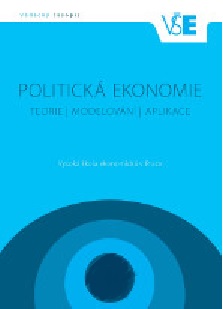Fiskální deficit a emise peněz v České republice v době pandemie covidu-1
Fiscal Deficit and Money Issuance in Czech Republic during COVID-19 Pandemic
Author(s): Jan Kubíček, Pavel MordaSubject(s): Economy, National Economy, Public Finances
Published by: Vysoká škola ekonomická v Praze
Keywords: Fiscal deficit; money creation; net domestic assets; net foreign assets; demand for money
Summary/Abstract: The public finances of the Czech Republic fell into deep deficits during the pandemic, while the money supply growth rate accelerated. We make a basic comparison of monetary acceleration during the first two years of the pandemic with other countries. We verify that this acceleration in the Czech Republic was partly due to commercial banks increasing credit to the government. We argue that purchases of government bonds by non-residents have a similar effect. This is particularly true when non-residents use existing koruna deposits held by them, partly as a result of past foreign exchange interventions, to purchase government bonds. While there was an acceleration in monetary growth during the pandemic, there was a decline in monetary growth during the Great Financial Crisis (GFC). However, our analysis suggests that this was due mainly to a decline in private credit growth during the GFC. We see no fundamental reasons for a structural change in money demand as a result of the pandemic. We therefore believe that unless the observed monetary acceleration is offset by slower-than-trend monetary growth in the near term, it will translate into an increase in the price level.
Journal: Politická ekonomie
- Issue Year: 71/2023
- Issue No: 1
- Page Range: 68-88
- Page Count: 20
- Language: Czech

